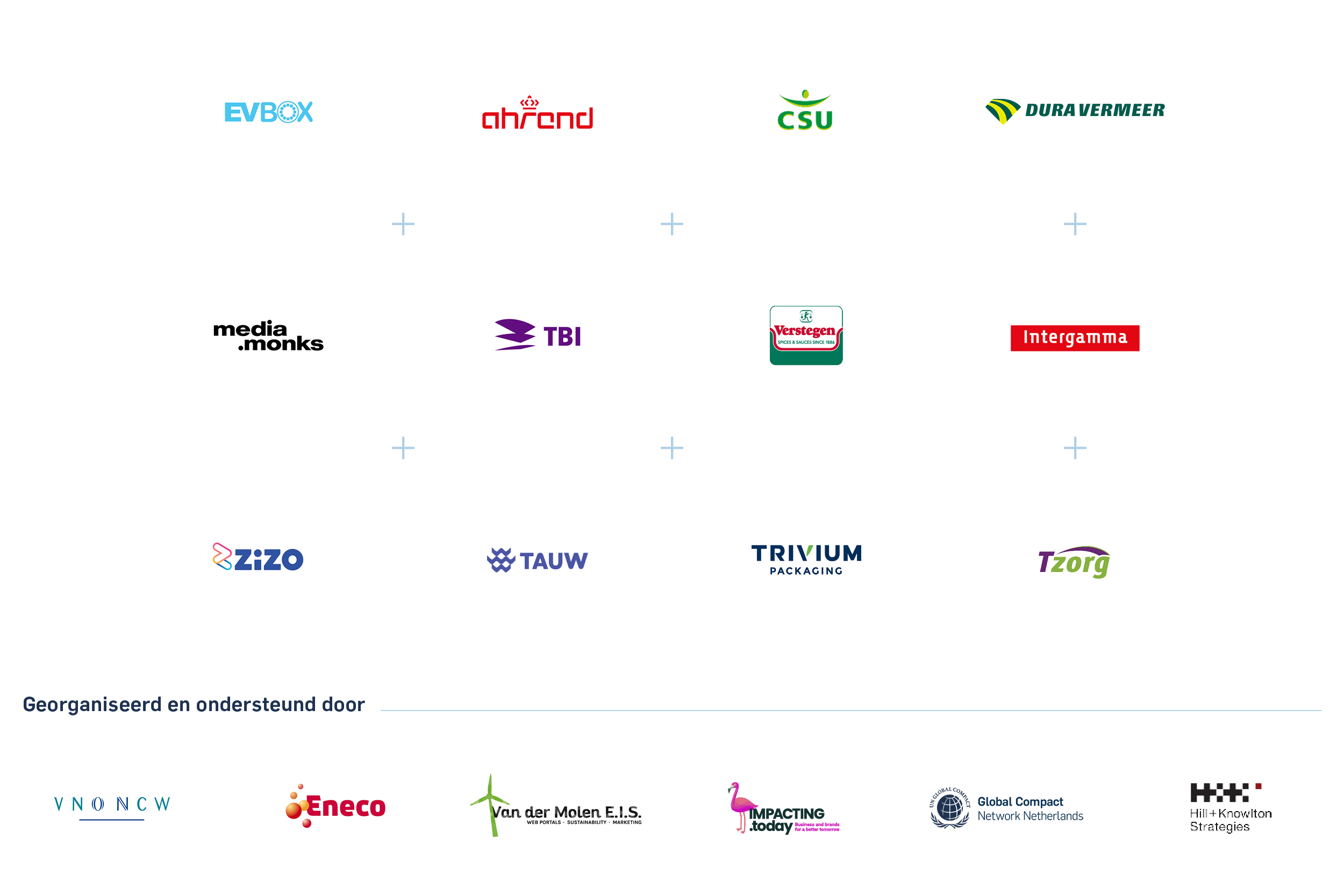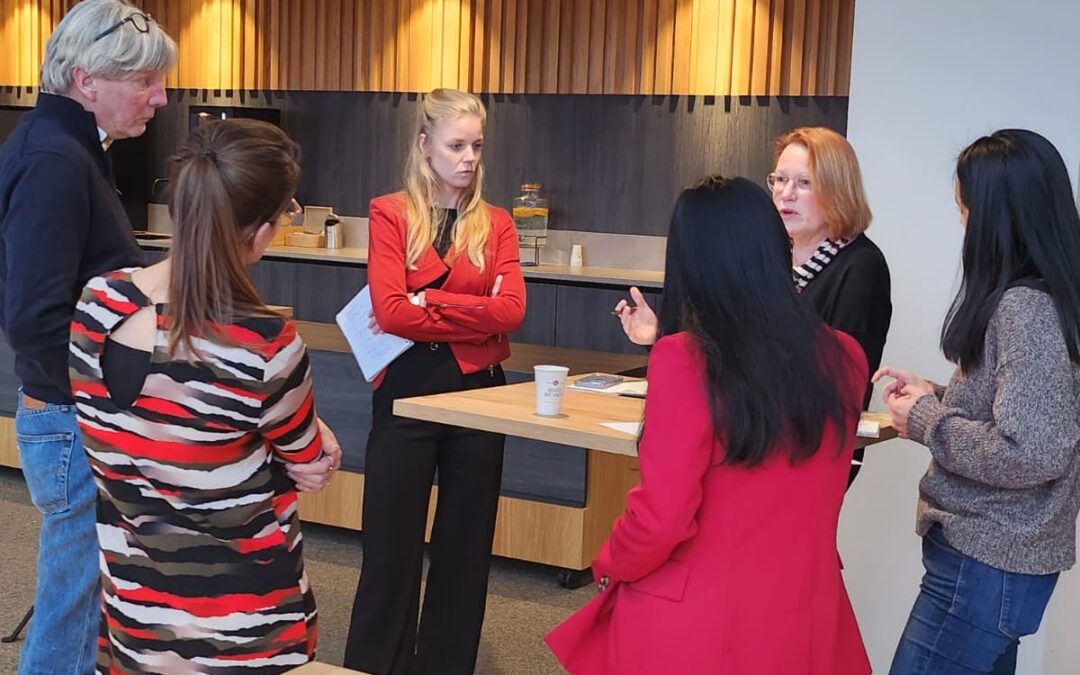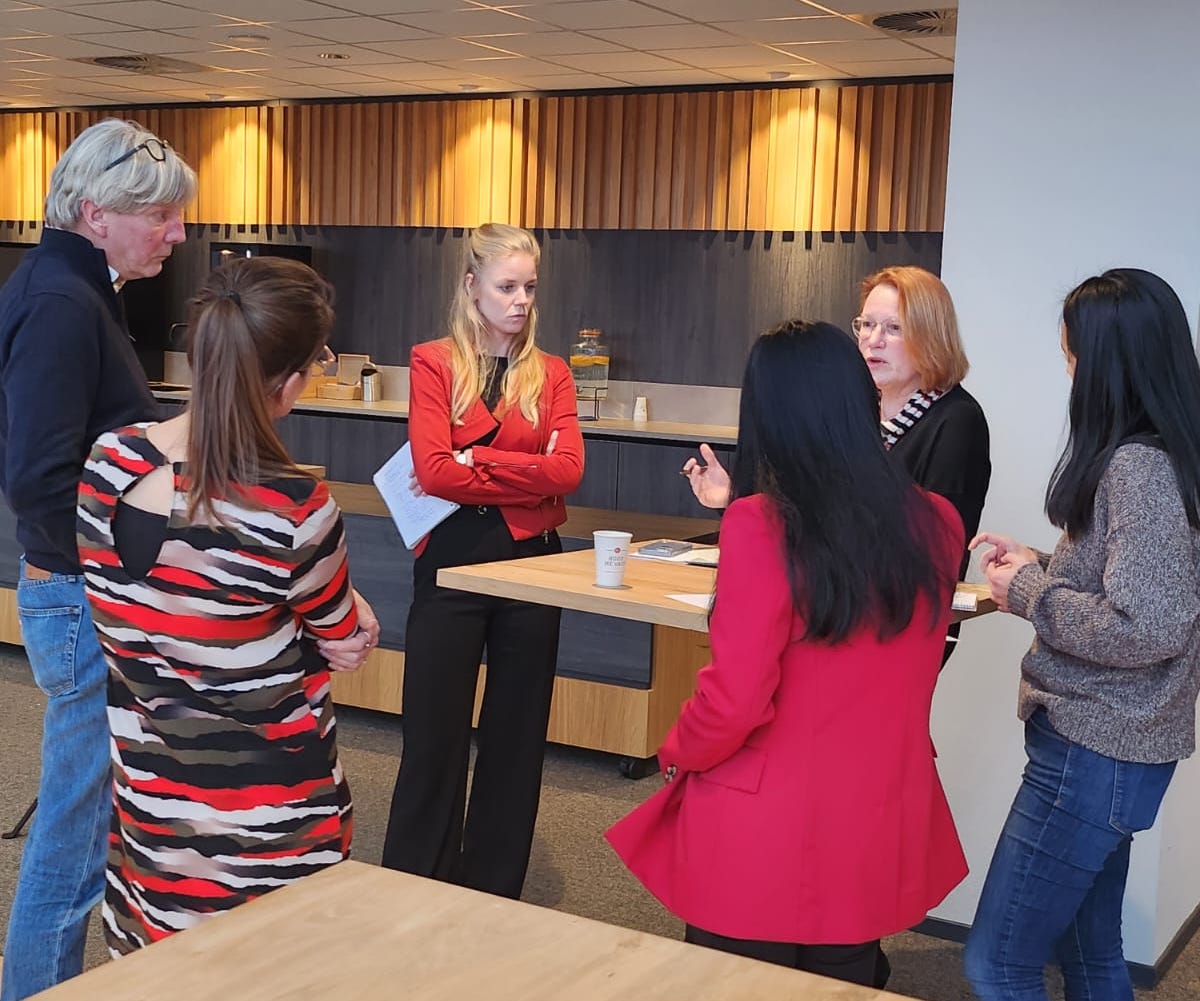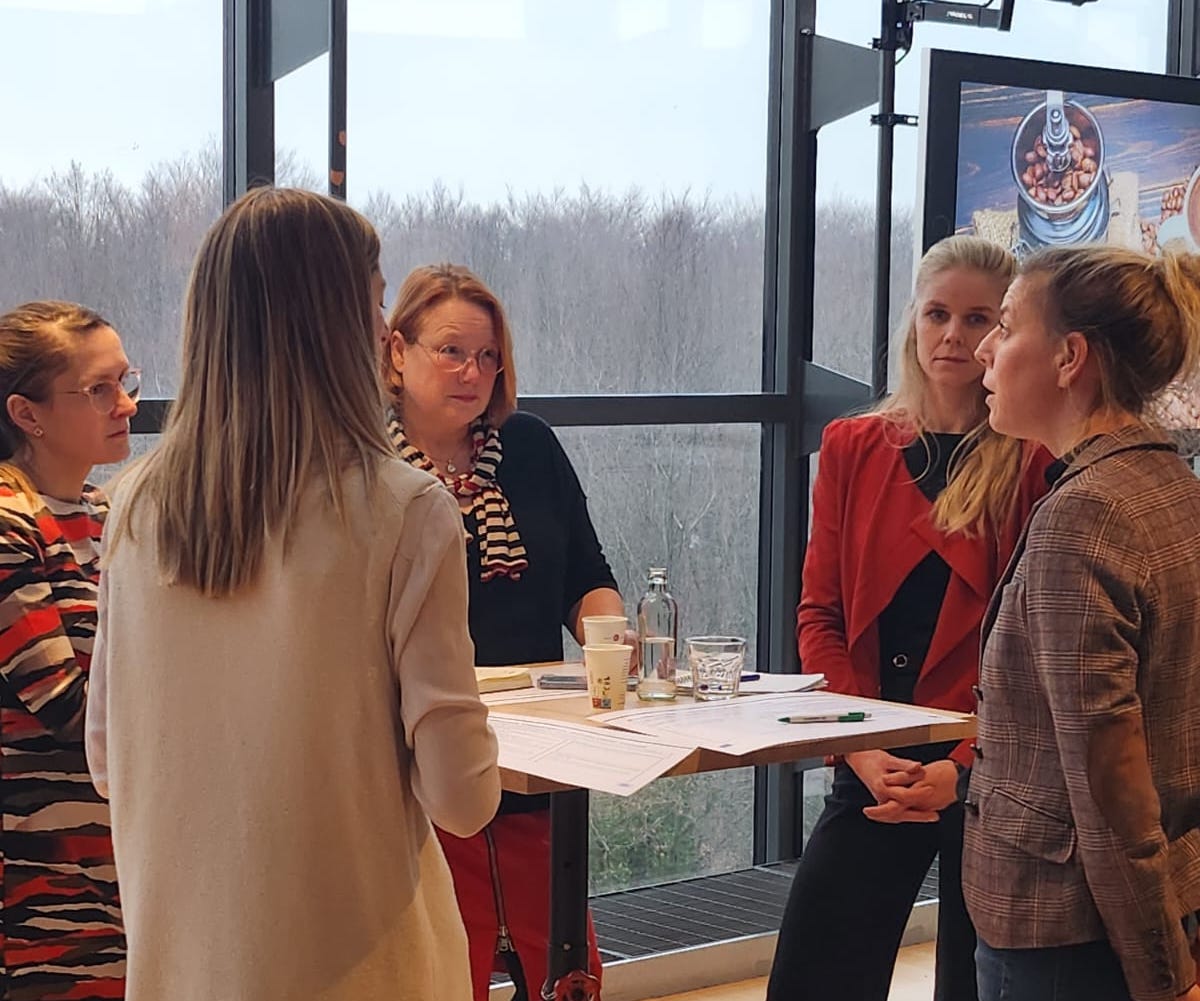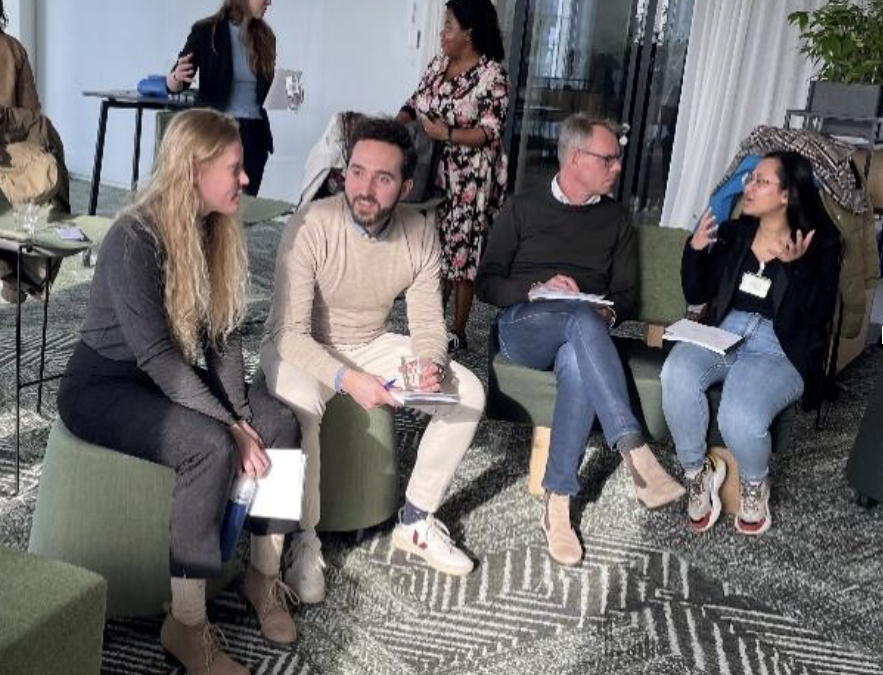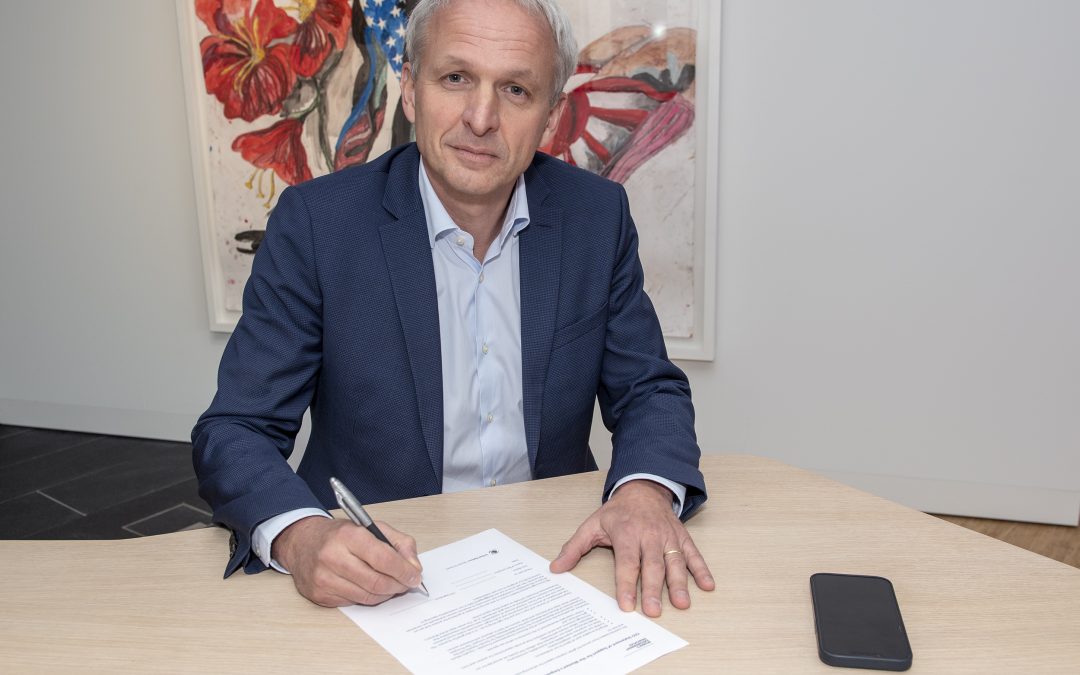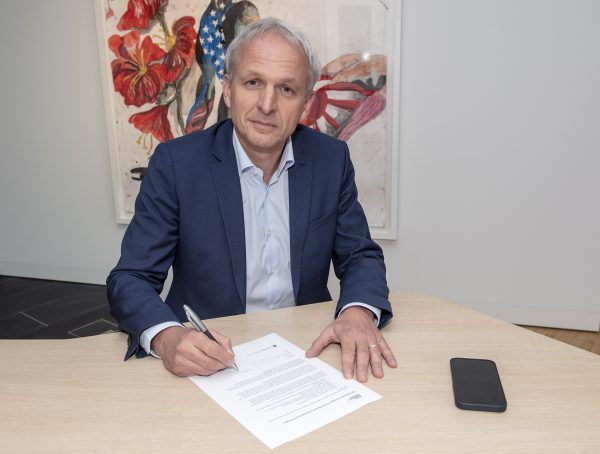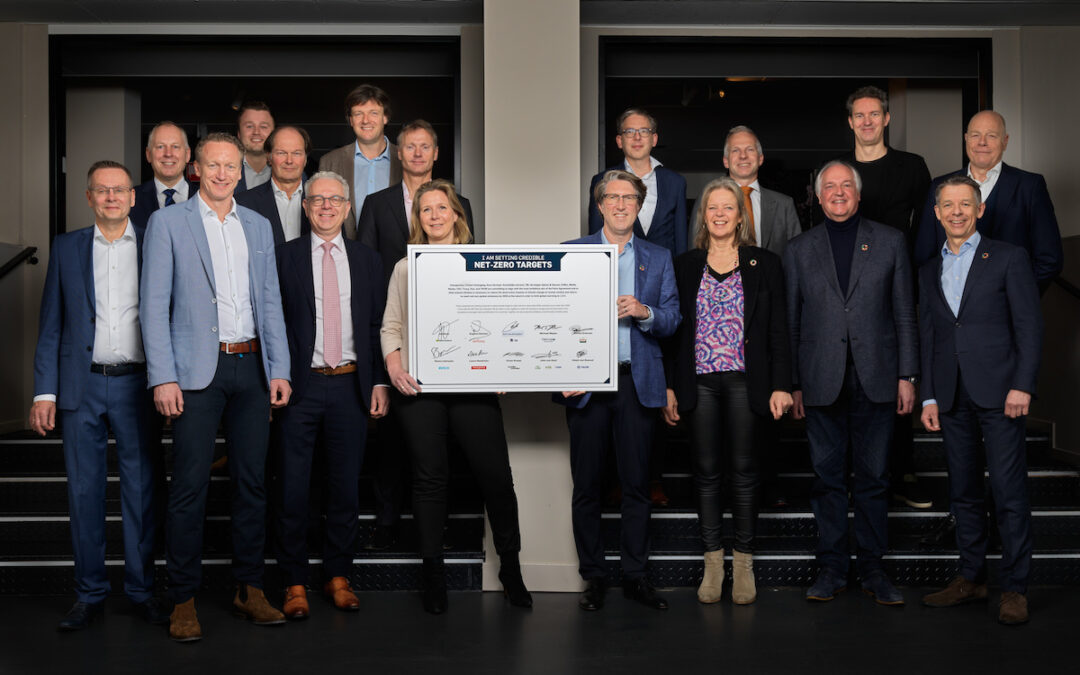
Dutch companies commit to science-based net-zero climate targets
Dutch companies commit to science-based net-zero climate targets
CEOs call upon others to join in the run-up to COP28
Bussum, 18 April 2023 – Today, 10 CEOs of leading Dutch companies commit to setting science-based targets, using the Net-Zero Standard of the Science Based Targets initiative (SBTi). In doing so, these companies are working toward aligning their entire value chain to operate in harmony with the Paris Climate Accord and contribute to limiting the rise of global temperature to 1.5°C.
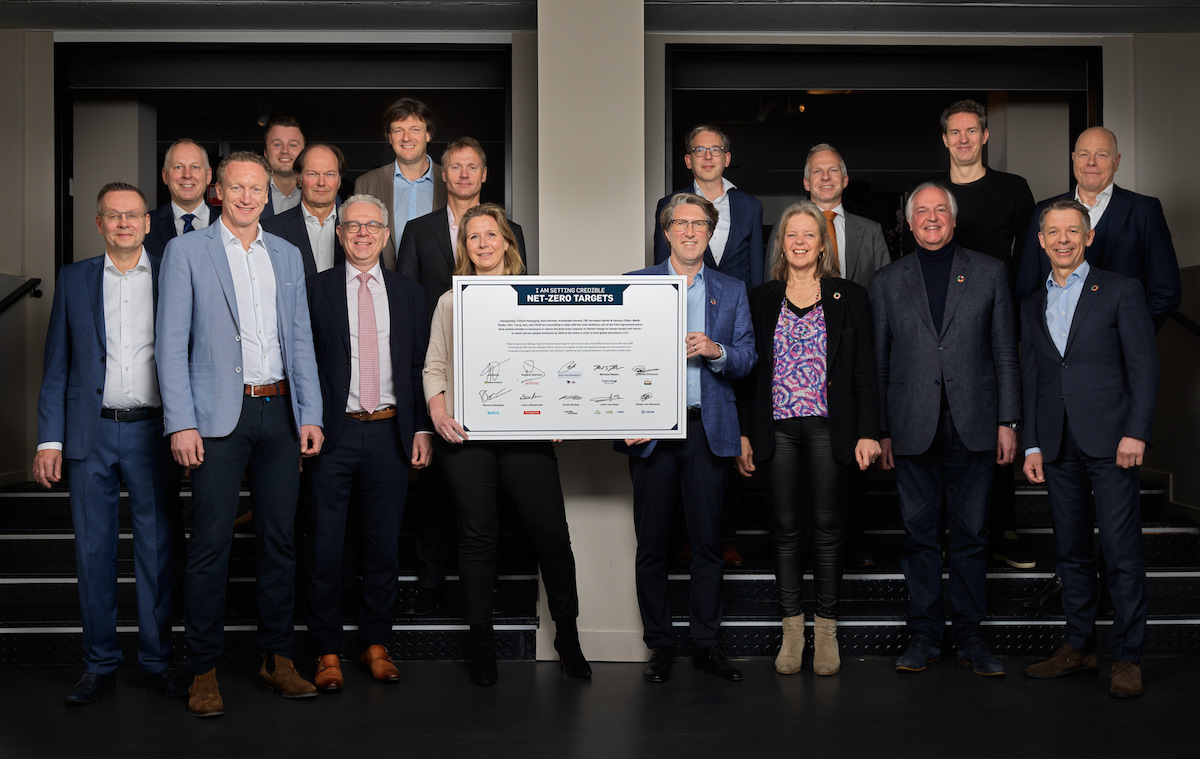
The statement was signed was during a CEO breakfast prior to the Purpose Day XL conference, led by the Vice-Chair of the United Nations Global Compact, Paul Polman. The companies that committed are: Intergamma, Trivium Packaging, Dura Vermeer, Koninklijke Ahrend, TBI, Verstegen Spices & Sauces, EVBox, Media.Monks, CSU, Tzorg, Zizo, and TAUW.
The companies are committed to setting near- and long-term emission reduction targets to reach net-zero GHGs emissions across their value chain by no later than 2050, independently validated by SBTi’s technical experts. This means making rapid emission cuts now, halving emissions by 2030. By 2050, these organizations must produce close to zero emissions and will neutralise any residual emissions that are not possible to eliminate. The SBTi Net-Zero Standard is currently the most ambitious goal companies can set and covers a company’s entire value chain. Most companies will require deep decarbonization of at least 90% to reach net-zero under the Standard.
Paul Polman: “The latest IPCC report is the strongest warning yet that only immediate, large-scale action can prevent a complete collapse of the climate. It is very hopeful that today these companies are committing to credible, measurable, and science-based targets to mitigate climate change as much as possible. Their call to all companies that have not yet set credible science-based targets to join, as well as their call for governments to help make ambitious corporate climate action business as usual, I strongly support.”
Employer organization VNO-NCW supports this call to action and was present at the signing. “It is great that this new group of companies commits to becoming net-zero by 2050, and setting targets using a scientific standard for external validation. The private sector has committed to the Paris Agreement, and the use of SBTi increases public trust in that promise. SBTi is becoming the best-in-class in this regard,” says Focco Vijselaar, Executive Director of VNO-NCW.
Eneco was the first Dutch company to have net-zero targets validated by SBTi. The CEO As Tempelman clarified at the breakfast, “We have a responsibility to keep our earth livable for future generations, there is no ‘Planet B’. The latest science shows that we are in a race against time. Rigorous measures are needed now. I call upon all companies to be transparent in what carbon budget they are still allowed to emit that fits with the 1.5-degree emissions pathway for their sector. And based on this, implement an externally validated roadmap of climate actions to match it. Every company must take responsibility. Together we can make a difference.”
About SBTi
The Science Based Targets initiative (SBTi) is a collaboration between the CDP (Climate Disclosure Project), the United Nations Global Compact, World Resources Institute, and the World Wide Fund for Nature. Science Based Targets (SBT) provide a thorough analysis of emissions and reduction plans. The SBTi reviews and validates the targets for GHG emissions of companies independently, and according to the most recent climate science.
About the CEO breakfast
The CEO breakfast and the commitment of the attending companies was organized by UN Global Compact Network Netherlands, IMPACTING.today, Purpose Day XL co-organizer Folkert van der Molen (Van der Molen E.I.S.), and Charlotte de Voogd of H+K Strategies. The plant-based breakfast was sponsored by the Vermaat Group.
